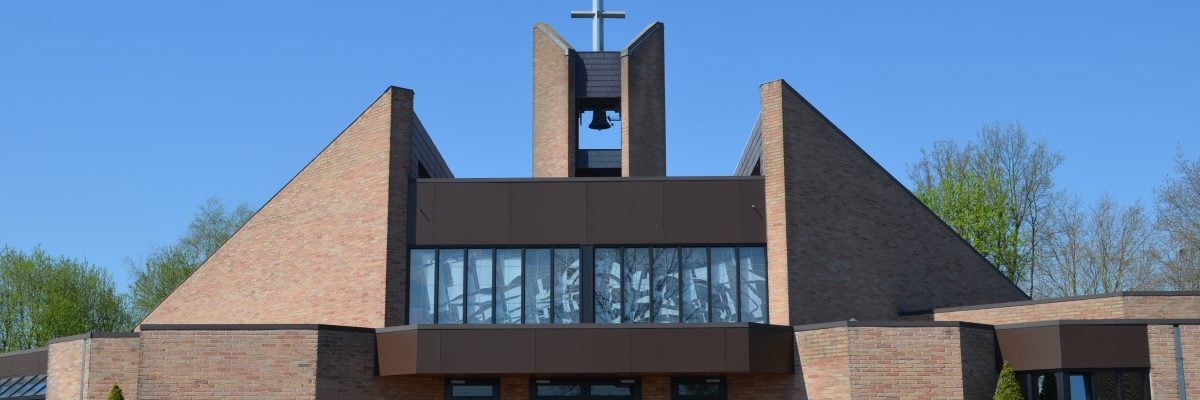
What do you call a Calvinist who attends Mass whenever he’s traveling?
That’s my friend Andrew. We’ve been friends since high school, back when we were both Protestant. Now I’m Catholic, but he’s still a committed Calvinist, although he’s not only friendly to Catholicism, he also knows more Catholic doctrine than 90 percent of Catholics. When he’s on the road over a weekend, he even finds a Catholic Mass to attend on Sunday morning. I’ve asked him why he doesn’t just go to a local Presbyterian church on those trips; he said it’s too hard to find one that hasn’t, in his words, “apostatized.”
Sometimes when he’s out of town and looking for a Catholic parish, he asks me if I know of any. Recently he was in a town I’m familiar with and we had a text exchange:
Andrew: What do you know about St. Francis Xavier?
Me: I’d recommend another parish.
Andrew: But it’s right next door to the hotel!
Me: There’s a great parish downtown—St. Jude’s. You should go there.
But he went to the next-door parish anyway. Afterward I got another text:
Andrew: The priest admonished the young people to have hope because there might someday be female priests.
Me: I warned you.
Andrew: Is that a common debate?
Me: Only for people who still think it’s 1972. Why didn’t you go to St. Jude’s?
Andrew: St. Francis was right next door.
Me: If you were Catholic, you’d know “next door” doesn’t always work.
Andrew: I thought that was just a Protestant thing. The allure of Catholicism should be that next door works!
Of course, he’s right: a Catholic should be able to go to the parish next door and not worry that he’ll hear something other than Catholicism preached or prayed there.
My situation with Andrew is familiar to many Catholics. I’ve heard it time and again in my own evangelization work. You have a friend or family member whom you are leading toward the Church, but you’re hesitant to direct him to his neighborhood parish. You’re afraid it will have sappy music and watered-down preaching. It’s a Catch-22: you want your friend to become Catholic, so obviously you want him to attend a Catholic parish, but you believe that if he attends his local Catholic parish, he won’t want to become Catholic.
First, and hopefully most obvious, pray and do penance. Pray for the pastors and members of the local parish and for the local bishop, and offer up sacrifices for them. The problem of unfaithful or merely banal parishes is ultimately a spiritual one, and the only way to overcome it is through spiritual means.
Second, learn your history and teach it to those you are evangelizing. Many historians would agree that the thirteenth century was the apex of Catholic culture—that the Church on earth was in its fullest glory. It was the age of Dominic, Francis of Assisi, and Thomas Aquinas. It’s hard to find another time when the Church was in greater flower. Yet if you study the time period more closely, you’ll see that even then parish life wasn’t ideal.
In England, for example, the rector (pastor) of most parishes was an absentee shepherd who just wanted the tithes. He paid a small portion of this income to a (usually poorly educated) priest who administered the sacraments. Many men were rectors of multiple parishes, even dozens, collecting the tithes but never stepping foot in the parish itself. Sometimes the rector was a foreigner (usually an Italian) whom the pope recommended for the position as a favor. He simply pocketed the money and thought nothing of the parish’s welfare. This practice built up great resentment among the faithful toward both the rector and the pope!
No, parish life has never been perfect. Yet the Church has survived for 2,000 years and has kept and proclaimed the Faith nonetheless. And it will continue to do so, even if parish life can be frustratingly difficult.
A third recommendation: always keep in mind the divine elements of the Church. Once I was talking to Mormon missionaries at my door; in an effort to shake my faith they were regaling me with stories of scandals throughout Church history. Finally I interrupted them, “You don’t know the half of it! I could tell you two scandals for every one you know about. But that’s a great proof of the divine nature of the Church—only an institution with God as its founder could survive through all these scandals.”
This divine element is present at the parish level too. A parish might have a priest who’s a 1970s throwback, dreaming of a day when the Catholic Church is remade in the image of the Church of England. Yet the sacraments he celebrates are still valid. You still receive Jesus in the Blessed Sacrament. You still receive absolution for your sins in confession. For a potential convert, it’s imperative to understand the invisible elements of the Church and of the parish. He doesn’t have to depend on the human strength of the pastor to receive divine grace.
For a Protestant, this fact can be eye-opening.
Finally, it might be necessary to recommend a different parish. I realize this makes some Catholics uncomfortable, because they believe we must be loyal to our local parish no matter what. But sometimes it may be necessary to go elsewhere.
Many years ago my young family moved to a new city. The first day we attended Mass at the parish near us was All Souls Day. The pastor gave a homily explaining that purgatory doesn’t really exist. That was the last time I set foot in that church. I could not imagine trying to raise my young children in the Catholic faith while attending a parish that undermined it.
As their father, my duty to raise them Catholic is more important than loyalty to a certain parish. Likewise, when we are advising a non-Catholic friend: if his local parish is regularly contradicting the Faith in its preaching or practice, recommend another. Most practicing Catholics today know that some parishes are less faithful than others, so he might as well discover that sooner rather than later.
Every age has its own challenges; a significant one for ours is the state of many Catholic parishes. We must help non-Catholics who visit these parishes to understand that although the Church has a divine foundation, it still consists of fallen men and women who don’t always live up to the Faith. But, thanks be to God, we depend not on the human strength of fellow Catholics but on the divine help of the Lord.



